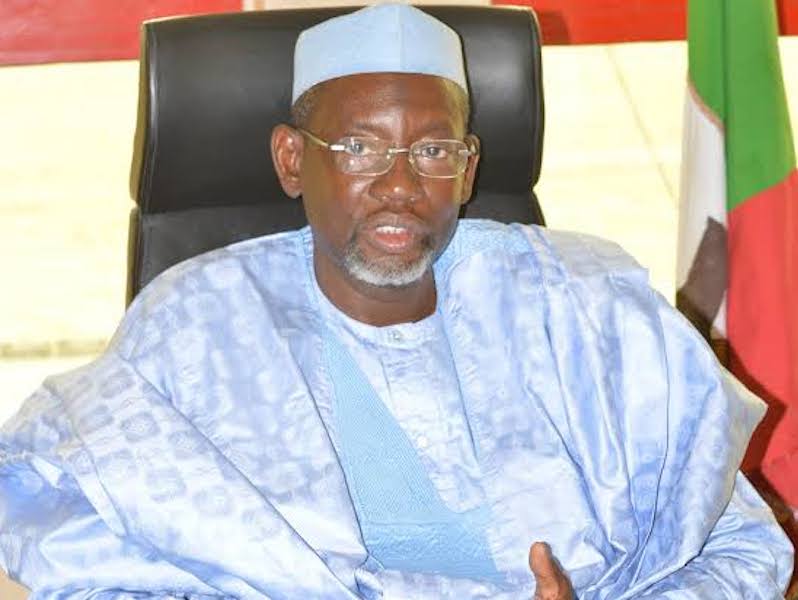The Minister of Interior, Ogbeni Rauf Aregebesola said that the COVID-19 pandemic contributed in no small measure to the upsurge of insecurity and economic woes confronting the nation.
Aregbesola made the assertion in a speech he delivered at the 3rd Annual Lecture of the Faculty of Arts, Ekiti State University (EKSU) in Ado-Ekiti.
Aregbesola who spoke on: “COVID-19: ‘The Economy and Security’”, said no fewer than 57 civilians, 43 security personnel were killed during lockdown occasioned by the pandemic.
He said that the death figure was the fallout of the frustration triggered by joblessness caused by efforts to contain the festering of the lethal disease.
According to him, the situation could have been worse, but for deft economic actions taken by the administration of President Muhammadu Buhari, which injected over N1.1 trillion into the economy, to reinvigorate the system.
He said the administration’s efforts also got a boost with over N42.3 billion expended by coalition of private bodies to palliate the effects of the pandemic and to reignite the economy back to its normal productive stature.
The minister disclosed that the partial dismantling of economic activities caused geometric increase in joblessness and offered veritable opportunities for criminals to recruit the youth into their gangs.
“The effect of COVID-19 on the economy is humongous. It is not surprising therefore that the GDP fell by 23 per cent while household incomes fell by 60 per cent.
“The fall in GDP is largely due to the fact that the four states put under lockdown account for two thirds of the economy.
“This development was a nightmare for the Nigerian economy, considering that oil accounts for 80 per cent of government revenues.
“We should have the managers of the economy and especially President Muhammadu Buhari to thank for safely steering the economy during this perilous period”, he said.
Aregbesola revealed that the World Bank gave a pathetic account that private remittances of Nigerians in the diaspora, declined by between 80 and 90 per cent in the first quarter and 25 per cent in the whole of 2020.
“By official estimates from the Federal Ministry of Information, 57 civilians, 37 policemen, and six soldiers were killed all over the country.
“Also, 196 policemen were injured; 164 police vehicles destroyed and 134 police stations were burnt down.
“The Nigeria Security and Civil Defence Corps, the Nigeria Customs Service and Nigeria Immigration Service all lost infrastructure, equipment and other valuables to attacks by hoodlums during the crisis.
“It is most regrettable that eight medium security custodial centres in Edo, Lagos, Abia, Delta, Ondo and Ebonyi states were attacked, with 1,957 inmates set free and 31 members of staff injured.
“While the violence lasted, 269 private and corporate facilities were burnt, looted or vandalised, 243 government facilities burnt and vandalised and 81 government warehouses looted.
“Even some cases, national strategic grain reserves were also looted,” he said.
He however, said that perhaps, the most insidious is that a lot of strange bedfellows, people within the same proximity but who hardly spend time together, now had to compulsorily cohabit for unusually long periods.
“This leads to tension and interpersonal conflict. Incidents of homicide, assault and battery, rape and domestic abuse also rose during the period.
“Women and the girl-child were particularly vulnerable to sexual assault and domestic abuse.
“Gender-based violence during COVID-19 lockdown has been rightly described as ‘a pandemic within a pandemic’, to highlight how pervasive the practice was”, he said.
Prof. Eddy Olanipekun, the Vice Chancellor of the Institution, said that the issue of COVID-19 have posed challenges to the country’s social, economic and political affairs.
According to him, ”time has come for the nation to build a strong response mechanism that can tame emergency situations,” he said.
The Dean, Faculty of Arts, Prof Ibrahim Abdu-Raheem, said the lecture was conceptualised to ruminate on how best the country can handle post-COVID-19 situation.
”And redirect the economy for better prosperity for the nation,” he said. (NAN)



